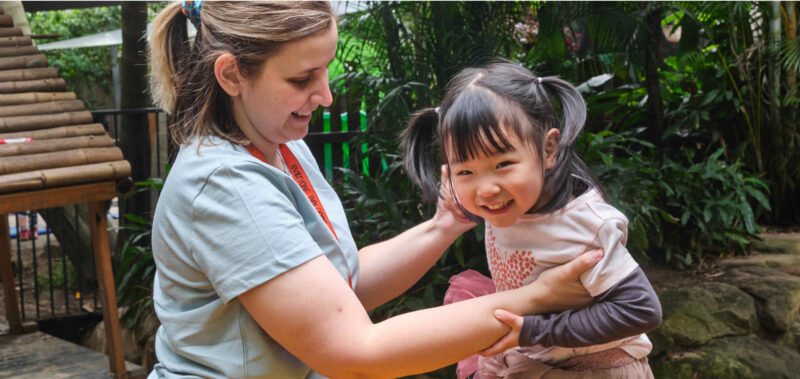
Building Self-Esteem in Children
At The Infants’ Home, we believe that every child deserves a strong start in life – and a big part of that foundation is self-esteem.
Self-esteem is a child’s sense of worth and belief in themselves. It plays a vital role in helping children feel capable, face challenges, try new things, and learn through experience. As children grow, their self-esteem develops through loving relationships, encouraging guidance, and opportunities to explore their abilities.
Why Self-Esteem Matters
Children with healthy self-esteem are more likely to:
- Try new activities and bounce back when things don’t go to plan
- Build positive relationships with others
- Feel confident in their ability to learn and succeed
From infancy to the early school years, there are many simple ways you can nurture your child’s self-esteem.
Babies (0–2 years): Building trust and love
Even though babies don’t yet see themselves as individuals, their self-esteem begins with feeling safe and loved.
You can support your baby’s sense of self by:
- Responding warmly to their needs
- Offering plenty of eye contact, cuddles and smiles
- Creating predictable, nurturing routines
These interactions help babies learn they are valued and cared for – laying the foundation for a strong self-image.
Toddlers (1–3 years): Exploring independence
Toddlers are just starting to understand who they are. They test boundaries and begin making choices, which helps them feel capable and confident.
You can boost your toddler’s self-esteem by:
- Letting them make simple choices, like what snack to eat or which book to read
- Giving them chances to say no and experience natural consequences
- Encouraging exploration while staying close for reassurance
- Coaching them through social situations, like learning to share
These small, everyday experiences help toddlers feel they have control over their world.
Preschoolers (3–5 years): Valuing effort over outcomes
Preschool-aged children are naturally curious and may start comparing themselves to others. This is a perfect time to reinforce that their value isn’t based on winning – but on trying.
Support your preschooler by:
- Praising effort, persistence and creativity – not just results.
- Focusing on fun and participation over performance. Try asking ‘Did you have fun?’ instead of ‘Did you win?’
- Encouraging responsibility through simple tasks, like setting the table or helping fold clothes
- Creating shared routines like family meals, which build connection and belonging
These affirming experiences help children feel proud of who they are and how they contribute.
Primary school-age (5–8 years): Facing challenges with courage
At this stage, children begin to understand more about how they compare to their peers. They may feel pressure to be ‘good’ at things.
You can help by:
- Offering reassurance and affection, especially after a tough day
- Focusing on their effort and courage, not just success
Encouraging them to keep trying when things are difficult - Role-playing social situations to build confidence and empathy
- Providing opportunities for creative exploration – like music, art, and storytelling
Supporting your child’s self-esteem at this age sets the stage for resilience and a positive self-concept as they grow.
A Final Word from the Infants’ Home
Every child is unique, and every child deserves to feel valued, confident, and loved. At The Infants’ Home, we see the lifelong impact that early self-esteem can have – not just in learning and development, but in relationships, mental health and future success.
By responding with love, encouraging their efforts, and offering space to grow, we can help children build the inner confidence they need to thrive.
Contact Us
If you have any questions or would like more information, please email us at childrensservices@theinfantshome.org.au.